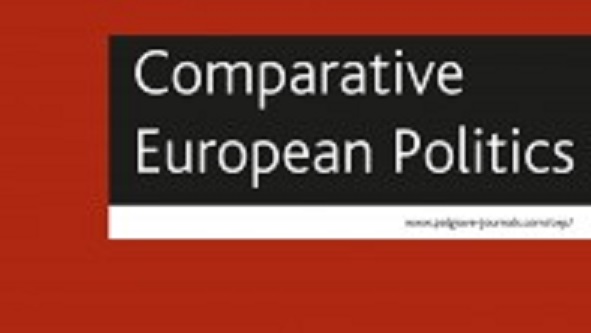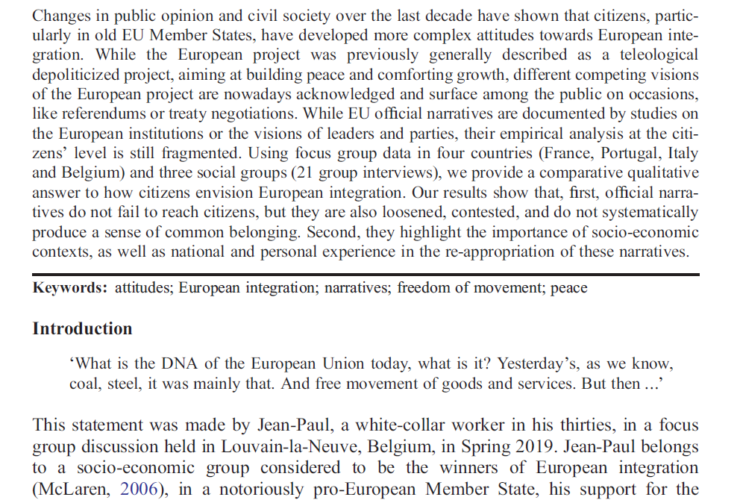Experiencing and supporting institutional regionalization in Belgium:
A normative and interpretive policy feedback perspective

DATE
Dec, 2020
AUTHOR
Verhaegen, Soetkin, Dupuy, Claire and Van Ingelgom, Virginie
CATEGORY
Publications
Experiencing and supporting institutional regionalization in Belgium: A normative and interpretive policy feedback perspective
Regionalization has been a defining feature of European politics since the 1970s. Previous work has studied political drivers of the movements of competences to the subnational level, including the role of citizens’ preferences. Yet, we still know little about how these new divisions of competences between government levels have impacted the development of public opinion about this division. This approach explains differences in support for regionalization between citizens that were socialized in different institutional and regional contexts. The analyses show that Walloons who came of age in the context of more institutional regionalization tend to be more supportive of regionalization. In Flanders, in contrast, support for regionalization is most consistently and substantially explained by regional and Belgian identification. However, our analyses show no support for the expectation that coming of age in a more regionalized Belgium is associated with a greater sense of regional identification.
Reference : Verhaegen, Soetkin, Dupuy, Claire and Van Ingelgom, Virginie, “Experiencing and supporting institutional regionalization in Belgium: A normative and interpretive policy feedback perspective”, Comparative European Politics (accepted for publication)



